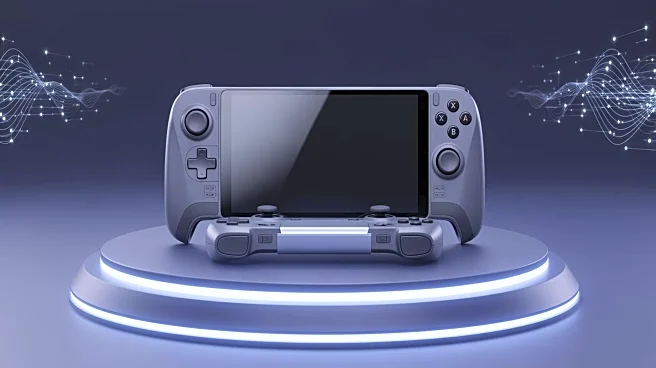What's Happening?
Nintendo has announced that it will continue selling the original Switch console, even as it shifts its primary focus to the newly launched Switch 2. The company has adjusted its sales forecast for the original Switch, predicting sales of 4 million units
for the current fiscal year, down from an earlier estimate of 4.5 million. Despite this, Nintendo has increased its projection for Switch game sales from 105 million to 125 million. The Switch 2, which has already sold over 10 million units, is now the fastest-selling Nintendo platform in its first four months. The original Switch has sold 154.01 million units worldwide, nearing the sales figures of the Nintendo DS, but still trailing behind the PlayStation 2, the best-selling console of all time.
Why It's Important?
The decision to continue selling the original Switch while focusing on the Switch 2 reflects Nintendo's strategy to cater to different market segments. By maintaining the availability of the original Switch, Nintendo can appeal to budget-conscious consumers or those not ready to transition to the newer model. The increased sales projection for Switch games suggests a strong software ecosystem that could drive hardware sales. The success of the Switch 2 indicates robust demand for Nintendo's latest offerings, potentially strengthening its market position against competitors like Sony and Microsoft. This strategy could also impact the gaming industry by influencing game developers to prioritize content for the Switch 2, given its rapid adoption rate.
What's Next?
Nintendo's focus on the Switch 2 suggests that future developments and game releases will likely prioritize this platform. The company may continue to adjust its sales strategies based on consumer demand and market conditions. As the holiday season approaches, Nintendo's ability to meet the demand for the Switch 2 will be crucial. The company may also explore new marketing strategies to boost sales of both hardware and software. Additionally, Nintendo's ongoing success could prompt competitors to innovate and enhance their offerings to capture market share.














